Đề thi học kì 2 Tiếng Anh 11 Global Success - Đề số 3Exercise 1. Choose A, B, C or D to indicate the word whose underlined part differs from the other three in pronunciation in each of the following questions. Exercise 2. Choose A, B, C or D to indicate the word that differs from the other three in the position of the primary stress in each of the following questions. Exercise 3. Choose A, B, C or D to indicate the correct answer to each of the following questions.Đề bài Find the word whose underlined part differs from the other three in pronunciation in each of the following questions. Câu 1
Câu 2
Câu 3
Find the word that differs from the other three in the position of stress in each of the following questions. Câu 4
Câu 5
Mark the letter A, B, C or D to indicate the correct answer to each of the following questions. Câu 6
The resource of valuable plants can _________ if we do not protect them.
Câu 7
__________ is a growing concern as technology becomes more common in students’ lives.
Câu 8
A strong sense of independence can enable you to make important decisions with less _________.
Câu 9
She spent months preparing for the university _________. She wanted to have a high score.
Câu 10
This cultural programme aims _________ a deeper understanding of our cultural heritage.
Câu 11
Yen: What do you think about his speech on protecting the ecosystem? - Duong: _________. It was useful and well-prepared.
Câu 12
Peer pressure can encourage students to study harder. _________, it leads to better school performance.
Câu 13
The more independent teenagers are, __________ they become.
Câu 14
_________ about the college, she started searching for information about it.
Câu 15
When going to these sites, visitors can learn about significant _________ events in Vietnamese history.
Read the following passage and mark the letter A, B, C, or D to indicate the correct word or phrase that best fits each of the numbered blanks. Peers affect each other just by spending time together. You learn from them, and they learn from you. It’s natural to listen to and learn from other people your age. Peers can affect you in many ways. For example, you might see what teens in your class are wearing, like it, and wear something like that, too. It (1) _________ both ways. Your peers might watch what you do and start doing it, too. Peers can influence each other in good ways. Maybe a teen in your science class taught you an easy way to remember the planets in the solar system. Maybe you admire a friend (2) _________ is a good sport, and you try (3) _________ more like them. Maybe you got others excited about your new favourite book and now everyone’s reading it. But peers can also influence each other in ways that aren’t so good. They might try to pressure you (4) _________ doing something you know is wrong. For example, what if a few teens in school try to get you to (5) _________ class with them? What if your soccer teammate tries to convince you to be mean to another player and never pass them the ball? What if a kid in the neighbourhood wants you to drink alcohol with them? Adapted from: https://kidshealth.org/en/kids/peer-pressure.html Câu 16
It (1) _________ both ways.
Câu 17
Maybe you admire a friend (2) _________ is a good sport,
Câu 18
and you try (3) _________ more like them.
Câu 19
They might try to pressure you (4) _________ doing something you know is wrong.
Câu 20
For example, what if a few teens in school try to get you to (5) _________ class with them?
Read the following passage and mark the letter A, B, C or D to indicate the correct answer to each of the questions. Parents and their teens don’t always agree on issues such as dress, following family rules or how teens spend their time. As a result, arguments often occur. In fact, researchers tell us that most families experience an increase in conflict and arguments as their children enter into the teen years. As children grow, their behaviour and attitudes are influenced by a variety of people with whom they have contact. They need to explore their world more independently so they can learn to feel confident in themselves and their abilities. During adolescence, teens begin to assert themselves with their parents and other people such as teachers, group leaders. For example, teens may now ask you why they should clean their room instead of just doing it. Often teens demand more responsibility and freedom for personal choices. They may begin to try new ways to dress, or spend more time with friends and less time with family. As their group of friends grows, parents are less likely to know who their friends are, or they may not approve of the friends their child has chosen. Adolescents try to find out who they are and where they fit in. They want to make choices on their own, but at the same time they are not always ready to handle the responsibilities that go along with those choices. Conflicts arise most sharply when teens are 13-15 years old, but generally decline as children get older. As might be expected, younger teens need more help in making decisions than older teens because they are less capable of understanding how their behaviours can affect themselves and others. As teens get older, they are better able to consider and understand the possible consequences of their behaviours and so are better able to make important decisions. For adolescents, the struggle for autonomy (being able to think and act independently) can be quite stressful. Although teens may behave in ways to assert their autonomy from the family, they still depend on parents for emotional support and guidance. By including teens in appropriate decision making, parents can help their children learn how to make good decisions and become independent adults. Adapted from: https://extension.tennessee.edu/publications/Documents/sp491a.pdf Câu 21
Which of the following can be the best title for the passage?
Câu 22
The word “they” in paragraph 2 refers to ________.
Câu 23
According to the passage, why do arguments often occur between parents and teens during teen years?
Câu 24
According to paragraph 4, how can parents help their teens in the struggle for autonomy?
Câu 25
Which of the following can be inferred conflicts between teens and parents from the passage?
Mark the letter A, B, C or D to indicate the sentence that is closest in meaning to each of the following questions. Câu 26
Oil drilling is one of the factors that cause damage to marine life.
Câu 27
I asked her not to post bad comments about other people on social media but she still did it.
Câu 28
Money management skills play a crucial role in achieving financial independence.
Mark the letter A, B, C or D to indicate the sentence that best combines each pair of sentences in the following questions. Câu 29
Lisa joined our trip to the Temple of Literature in Ha Noi. She was the last person who did so.
Câu 30
An was suffering from anxiety. She was physically bullied at school.
Câu 31.1 :
31. Steven is studying foreign species in science class.
Câu 31.2 :
32. Humans have brought foreign species around the world for hundreds of years.
Câu 31.3 :
33. The Burmese pythons in Florida have eaten some native species.
Câu 31.4 :
34. Two men caught a Burmese python that was nine meters long.
Câu 31.5 :
35. Steven feels bad that some foreign species must be killed.
Câu 32 :
You will hear five short conversations. You will hear each conversation twice. There is one question for each conversation. For each question, choose the correct answer (A, B, or C).
Câu 32.1 :
36. What kind of course will Hannah study?
Câu 32.2 :
37. Which degree does Matt want to get?
Câu 32.3 :
38. What problem does Mary have with her tablet?
Câu 32.4 :
39. Which rule do the students often forget?
Câu 32.5 :
40. Which class does John buy a tablet for?
Lời giải và đáp án Find the word whose underlined part differs from the other three in pronunciation in each of the following questions. Câu 1
Đáp án : A Phương pháp giải :
Kiến thức: Phát âm “a” Lời giải chi tiết :
native /ˈneɪtɪv/ habitat /ˈhæbɪtæt/ natural /ˈnætʃərəl/ mammal /ˈmæməl/ Phần được gạch chân ở phương án A được phát âm /eɪ/, các phương án còn lại phát âm /æ/. Chọn A Câu 2
Đáp án : B Phương pháp giải :
Kiến thức: Phát âm “s” Lời giải chi tiết :
install /ɪnˈstɔːl/ measure /ˈmɛʒər/ self-study /ˈsɛlf ˈstʌdi/ set /sɛt/ Phần được gạch chân ở phương án B được phát âm /ʒ/, các phương án còn lại phát âm /s/. Chọn B Câu 3
Đáp án : D Phương pháp giải :
Kiến thức: Phát âm “t” Lời giải chi tiết :
victim /ˈvɪktɪm/ promote /prəˈmoʊt/ violent /ˈvaɪələnt/ attention /əˈtɛnʃən/ Phần được gạch chân ở phương án D được phát âm /ʃ/, các phương án còn lại phát âm /t/. Chọn D Find the word that differs from the other three in the position of stress in each of the following questions. Câu 4
Đáp án : C Phương pháp giải :
Kiến thức: Trọng âm từ 2 âm tiết Lời giải chi tiết :
leaver /ˈliːvər/ college /ˈkɒlɪdʒ/ degree /dɪˈɡriː/ brochure /ˈbroʊʃər/ Phương án C có trọng âm 2, các phương án còn lại có trọng âm 1. Chọn C Câu 5
Đáp án : B Phương pháp giải :
Kiến thức: Trọng âm từ có 3 âm tiết Lời giải chi tiết :
historic /hɪˈstɒrɪk/ punishment /ˈpʌnɪʃmənt/ contribute /kənˈtrɪbjuːt/ awareness /əˈwɛərnəs/ Phương án B có trọng âm 1, các phương án còn lại có trọng âm 2. Chọn B Mark the letter A, B, C or D to indicate the correct answer to each of the following questions. Câu 6
The resource of valuable plants can _________ if we do not protect them.
Đáp án : B Phương pháp giải :
Kiến thức: Từ vựng Lời giải chi tiết :
cut down (phr.v): cắt giảm run out (phr.v): cạn kiệt locate in (phr.v): nằm ở depend on (phr.v): phụ thuộc The resource of valuable plants can run out if we do not protect them. (Nguồn tài nguyên thực vật có giá trị có thể cạn kiệt nếu chúng ta không bảo vệ chúng.) Chọn B Câu 7
__________ is a growing concern as technology becomes more common in students’ lives.
Đáp án : D Phương pháp giải :
Kiến thức: Từ vựng Lời giải chi tiết :
Overpopulation (n): quá tải dân số Policy (n): chính sách Self-confidence (n): tự tin Cyberbullying (n): bắt nạt trên mạng Cyberbullying is a growing concern as technology becomes more common in students’ lives. (Bắt nạt qua mạng là mối lo ngại ngày càng tăng khi công nghệ trở nên phổ biến hơn trong cuộc sống của học sinh.) Chọn D Câu 8
A strong sense of independence can enable you to make important decisions with less _________.
Đáp án : B Phương pháp giải :
Kiến thức: Từ vựng Lời giải chi tiết :
motivation (n): động lực pressure (n): áp lực freedom (n): sự tự do confidence (n): sự tự tin A strong sense of independence can enable you to make important decisions with less pressure. (Ý thức độc lập mạnh mẽ có thể giúp bạn đưa ra những quyết định quan trọng với ít áp lực hơn.) Chọn B Câu 9
She spent months preparing for the university _________. She wanted to have a high score.
Đáp án : D Phương pháp giải :
Kiến thức: Từ vựng Lời giải chi tiết :
technical education : giáo dục kỹ thuật critical thinking: tư duy phản biện job market: thị trường việc làm entrance exam: kỳ thi tuyển sinh She spent months preparing for the university entrance exam. She wanted to have a high score. (Cô dành nhiều tháng chuẩn bị cho kỳ thi tuyển sinh đại học. Cô muốn đạt điểm cao.) Chọn D Câu 10
This cultural programme aims _________ a deeper understanding of our cultural heritage.
Đáp án : C Phương pháp giải :
Kiến thức: Mệnh đề “to V” Lời giải chi tiết :
Theo sau động từ “aim” (mục tiêu) cần một động từ ở dạng TO Vo (nguyên thể). This cultural programme aims to promote a deeper understanding of our cultural heritage. (Chương trình văn hóa này nhằm mục đích thúc đẩy sự hiểu biết sâu sắc hơn về di sản văn hóa của chúng tôi.) Chọn C Câu 11
Yen: What do you think about his speech on protecting the ecosystem? - Duong: _________. It was useful and well-prepared.
Đáp án : A Phương pháp giải :
Kiến thức: Chức năng giao tiếp Lời giải chi tiết :
It is my favourite: Đó là thứ tôi thích nhất I am not really into it: Tôi không thực sự thích nó I feel nervous: Tôi cảm thấy lo lắng I am afraid I cannot make it: Tôi sợ mình không thể làm được Yen: What do you think about his speech on protecting the ecosystem? - Duong: It is my favourite. It was useful and well-prepared. (Yến: Bạn nghĩ gì về bài phát biểu của anh ấy về việc bảo vệ hệ sinh thái? - Dương: Đó là phần tôi thích nhất. Nó rất hữu ích và được chuẩn bị tốt.) Chọn A Câu 12
Peer pressure can encourage students to study harder. _________, it leads to better school performance.
Đáp án : B Phương pháp giải :
Kiến thức: Liên từ Lời giải chi tiết :
In addition: thêm vào đó Therefore: do đó Despite: mặc dù Since: vì Peer pressure can encourage students to study harder. Therefore, it leads to better school performance. (Áp lực từ bạn bè có thể khuyến khích học sinh học tập chăm chỉ hơn. Vì vậy, nó dẫn đến kết quả học tập tốt hơn.) Chọn B Câu 13
The more independent teenagers are, __________ they become.
Đáp án : D Phương pháp giải :
Kiến thức: So sánh kép Lời giải chi tiết :
Công thức so sánh lũy tiến với tính từ dài: The more + tính từ dài + S + V, the more + tính từ dài + S + V. The more independent teenagers are, the more mature they become. (Thanh thiếu niên càng độc lập thì càng trưởng thành.) Chọn D Câu 14
_________ about the college, she started searching for information about it.
Đáp án : D Phương pháp giải :
Kiến thức: Danh động từ hoàn thành Lời giải chi tiết :
Rút gọn động từ đầu câu với hai vế có cùng chủ ngữ, diễn tả hành động trước sau trong quá khứ có công thức: Having + V3/ed, S + V2/ed. Having heard about the college, she started searching for information about it. (Sau khi nghe nói về trường đại học, cô bắt đầu tìm kiếm thông tin về nó.) Chọn D Câu 15
When going to these sites, visitors can learn about significant _________ events in Vietnamese history.
Đáp án : C Phương pháp giải :
Kiến thức: Từ vựng Lời giải chi tiết :
historic (adj): mang tính lịch sử historian (n): lịch sử gia historical (adj): thuộc về lịch sử historically (adv): thuộc về lịch sử Trước danh từ “event” (sự kiện) cần một tính từ. When going to these sites, visitors can learn about significant historical events in Vietnamese history. (Khi đến những địa điểm này, du khách có thể tìm hiểu về những sự kiện lịch sử quan trọng trong lịch sử Việt Nam.) Chọn C Read the following passage and mark the letter A, B, C, or D to indicate the correct word or phrase that best fits each of the numbered blanks. Peers affect each other just by spending time together. You learn from them, and they learn from you. It’s natural to listen to and learn from other people your age. Peers can affect you in many ways. For example, you might see what teens in your class are wearing, like it, and wear something like that, too. It (1) _________ both ways. Your peers might watch what you do and start doing it, too. Peers can influence each other in good ways. Maybe a teen in your science class taught you an easy way to remember the planets in the solar system. Maybe you admire a friend (2) _________ is a good sport, and you try (3) _________ more like them. Maybe you got others excited about your new favourite book and now everyone’s reading it. But peers can also influence each other in ways that aren’t so good. They might try to pressure you (4) _________ doing something you know is wrong. For example, what if a few teens in school try to get you to (5) _________ class with them? What if your soccer teammate tries to convince you to be mean to another player and never pass them the ball? What if a kid in the neighbourhood wants you to drink alcohol with them? Adapted from: https://kidshealth.org/en/kids/peer-pressure.html Câu 16
It (1) _________ both ways.
Đáp án : A Phương pháp giải :
Kiến thức: Từ vựng
Lời giải chi tiết :
goes (v): đi makes (v): làm takes (v): lấy sets (v): cài đặt It goes both ways. Your peers might watch what you do and start doing it, too. (Nó đi theo cả hai cách. Đồng nghiệp của bạn có thể xem những gì bạn làm và cũng bắt đầu thực hiện nó.) Chọn A Câu 17
Maybe you admire a friend (2) _________ is a good sport,
Đáp án : C Phương pháp giải :
Kiến thức: Đại từ quan hệ Lời giải chi tiết :
which: cái mà whom: người mà (theo sau là một S + V) who : người mà (theo sau là một V) why: tại sao Maybe you admire a friend who is a good sport, (Có thể bạn ngưỡng mộ một người bạn mà chơi thể thao giỏi,) Chọn C Câu 18
and you try (3) _________ more like them.
Đáp án : B Phương pháp giải :
Kiến thức: V-ing/ to V Lời giải chi tiết :
try + to V: cố gắng try + V-ing: thử Maybe you admire a friend who is a good sport, and you try to be more like them. (Có thể bạn ngưỡng mộ một người bạn chơi thể thao giỏi và bạn cố gắng trở nên giống họ hơn.) Chọn B Câu 19
They might try to pressure you (4) _________ doing something you know is wrong.
Đáp án : C Phương pháp giải :
Kiến thức: Giới từ Lời giải chi tiết :
Cụm từ “pressure sb into V-ing”: áp lực phải làm gì đó They might try to pressure you into doing something you know is wrong. (Họ có thể cố gây áp lực buộc bạn phải làm điều gì đó mà bạn biết là sai.) Chọn C Câu 20
For example, what if a few teens in school try to get you to (5) _________ class with them?
Đáp án : D Phương pháp giải :
Kiến thức: Từ vựng Lời giải chi tiết :
target (v): có mục tiêu consider (v): cân nhắc argue (v): tranh luận skip (v): bỏ qua what if a few teens in school try to get you to skip class with them? (Điều gì sẽ xảy ra nếu một vài thanh thiếu niên trong trường cố gắng thuyết phục bạn trốn học cùng họ?) Chọn D Chú ý
Bài hoàn chỉnh: Peers affect each other just by spending time together. You learn from them, and they learn from you. It’s natural to listen to and learn from other people your age. Peers can affect you in many ways. For example, you might see what teens in your class are wearing, like it, and wear something like that, too. It (1) goes both ways. Your peers might watch what you do and start doing it, too. Peers can influence each other in good ways. Maybe a teen in your science class taught you an easy way to remember the planets in the solar system. Maybe you admire a friend (2) who is a good sport, and you try (3) to be more like them. Maybe you got others excited about your new favourite book and now everyone’s reading it. But peers can also influence each other in ways that aren’t so good. They might try to pressure you (4) into doing something you know is wrong. For example, what if a few teens in school try to get you to (5) skip class with them? What if your soccer teammate tries to convince you to be mean to another player and never pass them the ball? What if a kid in the neighbourhood wants you to drink alcohol with them? Tạm dịch: Những người ngang hàng ảnh hưởng đến nhau chỉ bằng cách dành thời gian cho nhau. Bạn học từ họ và họ học từ bạn. Việc lắng nghe và học hỏi từ những người khác ở độ tuổi của bạn là điều tự nhiên. Bạn bè có thể ảnh hưởng đến bạn theo nhiều cách. Ví dụ: bạn có thể thấy thanh thiếu niên trong lớp đang mặc gì, thích nó và cũng mặc thứ gì đó tương tự. Nó (1) đi cả hai cách. Đồng nghiệp của bạn có thể xem những gì bạn làm và cũng bắt đầu thực hiện nó. Bạn bè có thể ảnh hưởng lẫn nhau theo những cách tốt. Có thể một thiếu niên trong lớp khoa học đã dạy bạn một cách dễ dàng để ghi nhớ các hành tinh trong hệ mặt trời. Có thể bạn ngưỡng mộ một người bạn (2) người mà chơi thể thao giỏi và bạn cố gắng (3) giống họ hơn. Có thể bạn đã khiến người khác hào hứng với cuốn sách yêu thích mới của bạn và giờ đây mọi người đang đọc nó. Nhưng đồng nghiệp cũng có thể ảnh hưởng lẫn nhau theo những cách không mấy tốt đẹp. Họ có thể cố gắng (4) gây áp lực cho bạn làm điều gì đó mà bạn biết là sai. Ví dụ, điều gì sẽ xảy ra nếu một vài thanh thiếu niên ở trường cố gắng thuyết phục bạn (5) trốn học cùng họ? Điều gì sẽ xảy ra nếu đồng đội bóng đá của bạn cố gắng thuyết phục bạn đối xử tệ với một cầu thủ khác và không bao giờ chuyền bóng cho họ? Điều gì sẽ xảy ra nếu một đứa trẻ hàng xóm muốn bạn uống rượu cùng chúng? Read the following passage and mark the letter A, B, C or D to indicate the correct answer to each of the questions. Parents and their teens don’t always agree on issues such as dress, following family rules or how teens spend their time. As a result, arguments often occur. In fact, researchers tell us that most families experience an increase in conflict and arguments as their children enter into the teen years. As children grow, their behaviour and attitudes are influenced by a variety of people with whom they have contact. They need to explore their world more independently so they can learn to feel confident in themselves and their abilities. During adolescence, teens begin to assert themselves with their parents and other people such as teachers, group leaders. For example, teens may now ask you why they should clean their room instead of just doing it. Often teens demand more responsibility and freedom for personal choices. They may begin to try new ways to dress, or spend more time with friends and less time with family. As their group of friends grows, parents are less likely to know who their friends are, or they may not approve of the friends their child has chosen. Adolescents try to find out who they are and where they fit in. They want to make choices on their own, but at the same time they are not always ready to handle the responsibilities that go along with those choices. Conflicts arise most sharply when teens are 13-15 years old, but generally decline as children get older. As might be expected, younger teens need more help in making decisions than older teens because they are less capable of understanding how their behaviours can affect themselves and others. As teens get older, they are better able to consider and understand the possible consequences of their behaviours and so are better able to make important decisions. For adolescents, the struggle for autonomy (being able to think and act independently) can be quite stressful. Although teens may behave in ways to assert their autonomy from the family, they still depend on parents for emotional support and guidance. By including teens in appropriate decision making, parents can help their children learn how to make good decisions and become independent adults. Adapted from: https://extension.tennessee.edu/publications/Documents/sp491a.pdf Câu 21
Which of the following can be the best title for the passage?
Đáp án : B Phương pháp giải :
Tạm dịch: Cha mẹ và con cái họ không phải lúc nào cũng đồng ý về các vấn đề như ăn mặc, tuân theo các quy tắc gia đình hoặc cách con cái sử dụng thời gian. Kết quả là thường xuyên xảy ra tranh cãi. Trên thực tế, các nhà nghiên cứu cho chúng ta biết rằng hầu hết các gia đình đều trải qua sự gia tăng xung đột và tranh cãi khi con cái họ bước vào tuổi thiếu niên. Khi trẻ lớn lên, hành vi và thái độ của chúng bị ảnh hưởng bởi nhiều người mà chúng tiếp xúc. Trẻ cần khám phá thế giới của mình một cách độc lập hơn để có thể học cách cảm thấy tự tin vào bản thân và khả năng của mình. Ở tuổi thiếu niên, thanh thiếu niên bắt đầu khẳng định mình với cha mẹ và những người khác như giáo viên, trưởng nhóm. Ví dụ: bây giờ thanh thiếu niên có thể hỏi bạn tại sao họ nên dọn phòng thay vì chỉ làm việc đó. Thông thường thanh thiếu niên đòi hỏi nhiều trách nhiệm và tự do hơn cho những lựa chọn cá nhân. Họ có thể bắt đầu thử những cách ăn mặc mới, hoặc dành nhiều thời gian hơn cho bạn bè và ít thời gian hơn cho gia đình. Khi nhóm bạn của con ngày càng phát triển, cha mẹ ít có khả năng biết bạn bè của mình là ai hoặc họ có thể không chấp nhận những người bạn mà con họ đã chọn. Thanh thiếu niên cố gắng tìm hiểu xem mình là ai và phù hợp với vị trí nào. Họ muốn tự mình đưa ra lựa chọn, nhưng đồng thời, họ không phải lúc nào cũng sẵn sàng đảm nhận những trách nhiệm đi kèm với những lựa chọn đó. Mâu thuẫn nảy sinh gay gắt nhất khi thanh thiếu niên ở độ tuổi 13-15 nhưng nhìn chung giảm dần khi trẻ lớn lên. Đúng như dự đoán, thanh thiếu niên trẻ tuổi cần được trợ giúp nhiều hơn trong việc đưa ra quyết định so với thanh thiếu niên lớn tuổi hơn vì chúng ít có khả năng hiểu hành vi của mình có thể ảnh hưởng đến bản thân và người khác như thế nào. Khi thanh thiếu niên lớn lên, các em có khả năng xem xét và hiểu rõ hơn những hậu quả có thể xảy ra do hành vi của mình gây ra và do đó có thể đưa ra các quyết định quan trọng tốt hơn. Đối với thanh thiếu niên, cuộc đấu tranh giành quyền tự chủ (có thể suy nghĩ và hành động độc lập) có thể khá căng thẳng. Mặc dù thanh thiếu niên có thể cư xử theo cách để khẳng định quyền tự chủ của mình khỏi gia đình, nhưng họ vẫn phụ thuộc vào sự hỗ trợ và hướng dẫn về mặt tinh thần của cha mẹ. Bằng cách cho thanh thiếu niên tham gia vào việc đưa ra quyết định phù hợp, cha mẹ có thể giúp con mình học cách đưa ra quyết định đúng đắn và trở thành người lớn độc lập. Lời giải chi tiết :
Điều nào sau đây có thể là tiêu đề tốt nhất cho đoạn văn? A. Hiểu về xung đột giữa cha mẹ và thanh thiếu niên B. Những thách thức liên quan đến tính độc lập của thanh thiếu niên C. Sự kiểm soát của cha mẹ đối với những lựa chọn của thanh thiếu niên D. Tác động của tình bạn đối với thanh thiếu niên Chọn B Câu 22
The word “they” in paragraph 2 refers to ________.
Đáp án : B Lời giải chi tiết :
Từ “họ” ở đoạn 2 đề cập đến ________. A. lựa chọn cá nhân B. thanh thiếu niên C. cha mẹ D. giáo viên Thông tin: As children grow, their behaviour and attitudes are influenced by a variety of people with whom they have contact. (Khi trẻ lớn lên, hành vi và thái độ của chúng bị ảnh hưởng bởi nhiều người mà chúng tiếp xúc.) Chọn B Câu 23
According to the passage, why do arguments often occur between parents and teens during teen years?
Đáp án : A Lời giải chi tiết :
Theo đoạn văn, tại sao tranh cãi thường xảy ra giữa cha mẹ và con cái trong những năm thiếu niên? A. Bởi vì thanh thiếu niên mong muốn có nhiều tự do hơn cho những lựa chọn cá nhân. B. Bởi vì cha mẹ và thanh thiếu niên luôn chấp nhận mọi thứ. C. Vì trẻ trở nên phụ thuộc và tự tin hơn vào bản thân. D. Bởi vì thanh thiếu niên có xu hướng dành nhiều thời gian hơn cho cha mẹ. Thông tin: Often teens demand more responsibility and freedom for personal choices… They want to make choices on their own, but at the same time they are not always ready to handle the responsibilities that go along with those choices. (Mặc dù thanh thiếu niên có thể xử lý theo cách để khẳng định quyền tự chủ của mình từ gia đình, nhưng họ vẫn phụ thuộc vào sự hỗ trợ và hướng dẫn về mặt tinh thần của cha mẹ.) Chọn A Câu 24
According to paragraph 4, how can parents help their teens in the struggle for autonomy?
Đáp án : C Lời giải chi tiết :
Theo đoạn 4, cha mẹ có thể giúp đỡ con cái mình như thế nào trong cuộc đấu tranh giành quyền tự chủ? A. bằng cách khẳng định quyền kiểm soát và đặt ra các quy tắc nghiêm ngặt B. bằng cách loại trừ thanh thiếu niên khỏi quá trình ra quyết định C. bằng cách cung cấp sự hỗ trợ và hướng dẫn về mặt cảm xúc D. bằng cách cho phép thanh thiếu niên đưa ra mọi quyết định một cách độc lập Thông tin: Although teens may behave in ways to assert their autonomy from the family, they still depend on parents for emotional support and guidance. (Mặc dù thanh thiếu niên có thể cư xử theo cách để khẳng định quyền tự chủ của mình khỏi gia đình, nhưng họ vẫn phụ thuộc vào sự hỗ trợ và hướng dẫn về mặt tinh thần của cha mẹ.) Chọn C Câu 25
Which of the following can be inferred conflicts between teens and parents from the passage?
Đáp án : C Lời giải chi tiết :
Điều nào sau đây có thể suy ra xung đột giữa thanh thiếu niên và cha mẹ từ đoạn văn? A. Chúng chỉ xảy ra khi thanh thiếu niên ở độ tuổi từ 13-15. B. Chúng thường tăng lên khi trẻ trưởng thành hơn. C. Chúng nảy sinh từ mong muốn tự chủ và độc lập của thanh thiếu niên. D. Chúng suy giảm khi thanh thiếu niên trở nên ít có khả năng đưa ra quyết định Thông tin: Conflicts arise most sharply when teens are 13-15 years old, but generally decline as children get older. As might be expected, younger teens need more help in making decisions than older teens because they are less capable of understanding how their behaviours can affect themselves and others. (Mâu thuẫn nảy sinh gay gắt nhất khi thanh thiếu niên ở độ tuổi 13-15 nhưng nhìn chung giảm dần khi trẻ lớn lên. Đúng như dự đoán, thanh thiếu niên trẻ tuổi cần được trợ giúp nhiều hơn trong việc đưa ra quyết định so với thanh thiếu niên lớn tuổi hơn vì chúng ít có khả năng hiểu hành vi của mình có thể ảnh hưởng đến bản thân và người khác như thế nào.) Chọn C Mark the letter A, B, C or D to indicate the sentence that is closest in meaning to each of the following questions. Câu 26
Oil drilling is one of the factors that cause damage to marine life.
Đáp án : D Phương pháp giải :
Kiến thức: Từ đồng nghĩa Lời giải chi tiết :
A. Oil drilling not only harms marine life but also other factors. => sai nghĩa (Khoan dầu không chỉ gây hại cho sinh vật biển mà còn các yếu tố khác.) B. Marine life is not damaged despite the oil drilling. => sai nghĩa (Sinh vật biển không bị thiệt hại dù đã khoan dầu.) C. Oil drilling is the only factor that causes damage to marine life. => sai nghĩa (Khoan dầu là tác nhân duy nhất gây thiệt hại cho sinh vật biển.) D. Marine life is damaged by several factors, including oil drilling. (Sinh vật biển bị hư hại do nhiều yếu tố, trong đó có hoạt động khoan dầu.) Oil drilling is one of the factors that cause damage to marine life. (Khoan dầu là một trong những tác nhân gây thiệt hại cho sinh vật biển.) => Marine life is damaged by several factors, including oil drilling. (Sinh vật biển bị hư hại do nhiều yếu tố, trong đó có hoạt động khoan dầu.) Chọn D Câu 27
I asked her not to post bad comments about other people on social media but she still did it.
Đáp án : B Phương pháp giải :
Kiến thức: Mệnh đề nhượng bộ với “though/ but” Lời giải chi tiết :
A. I asked her not to post bad comments about other people on social media; besides, she still did it. => sai nghĩa (Tôi yêu cầu cô ấy không đăng những bình luận không hay về người khác trên mạng xã hội; Ngoài ra, cô ấy vẫn làm điều đó.) B. Though I asked her not to post bad comments about other people on social media, she still did it. (Mặc dù tôi đã yêu cầu cô ấy không đăng những bình luận không hay về người khác trên mạng xã hội nhưng cô ấy vẫn làm.) C. I asked her not to post bad comments about other people on social media; as a result, she still did it. => sai nghĩa (Tôi yêu cầu cô ấy không đăng những bình luận không hay về người khác trên mạng xã hội; kết quả là cô ấy vẫn làm.) D. In addition to asking her not to post bad comments about other people on social media, she still did it. => sai nghĩa (Ngoài việc yêu cầu cô ấy không đăng những bình luận không hay về người khác trên mạng xã hội, cô ấy vẫn làm.) I asked her not to post bad comments about other people on social media but she still did it. (Tôi yêu cầu cô ấy không đăng những bình luận không hay về người khác trên mạng xã hội nhưng cô ấy vẫn làm.) => Though I asked her not to post bad comments about other people on social media, she still did it. (Mặc dù tôi đã yêu cầu cô ấy không đăng những bình luận không hay về người khác trên mạng xã hội nhưng cô ấy vẫn làm.) Chọn B Câu 28
Money management skills play a crucial role in achieving financial independence.
Đáp án : C Phương pháp giải :
Kiến thức: Câu chẻ Lời giải chi tiết :
Cấu trúc câu chẻ: It is + cụm từ cần nhấn mạnh + that + S + V A. Money management skills are unnecessary to achieve financial independence. => sai nghĩa (Kỹ năng quản lý tiền là không cần thiết để đạt được sự độc lập về tài chính.) B. Achieving financial independence requires time management skills. => sai nghĩa (Đạt được sự độc lập về tài chính đòi hỏi kỹ năng quản lý thời gian.) C. It is money management skills that play an important role in achieving financial independence. (Kỹ năng quản lý tiền đóng vai trò quan trọng trong việc đạt được sự độc lập về tài chính.) D. There are money management skills that play an important role in achieving financial independence. => sai nghĩa (Có những kỹ năng quản lý tiền đóng vai trò quan trọng trong việc đạt được sự độc lập về tài chính.) Money management skills play a crucial role in achieving financial independence. (Kỹ năng quản lý tiền đóng một vai trò quan trọng trong việc đạt được sự độc lập về tài chính.) => It is money management skills that play an important role in achieving financial independence. (Kỹ năng quản lý tiền đóng vai trò quan trọng trong việc đạt được sự độc lập về tài chính.) Chọn C Mark the letter A, B, C or D to indicate the sentence that best combines each pair of sentences in the following questions. Câu 29
Lisa joined our trip to the Temple of Literature in Ha Noi. She was the last person who did so.
Đáp án : A Phương pháp giải :
Kiến thức: Mệnh đề “to V” Lời giải chi tiết :
A. Lisa was the last person to join our trip to the Temple of Literature in Ha Noi. (Lisa là người cuối cùng tham gia chuyến đi đến Văn Miếu ở Hà Nội của chúng tôi.) B. Lisa was the last person to be joined in our trip to the Temple of Literature in Ha Noi. => sai nghĩa (Lisa là người cuối cùng được tham gia chuyến đi đến Văn Miếu ở Hà Nội của chúng tôi.) C. Lisa joined our trip to the Temple of Literature in Ha Noi to be the last person doing so. => sai nghĩa (Lisa tham gia chuyến đi đến Văn Miếu Hà Nội của chúng tôi để là người cuối cùng làm việc đó.) D. Lisa joined our trip to the Temple of Literature in Ha Noi but she was the last person doing so. => sai nghĩa (Lisa tham gia chuyến đi Văn Miếu Hà Nội của chúng tôi nhưng cô ấy là người cuối cùng làm vậy.) Lisa joined our trip to the Temple of Literature in Ha Noi. She was the last person who did so. (Lisa tham gia chuyến đi của chúng tôi đến Văn Miếu ở Hà Nội. Cô ấy là người cuối cùng làm như vậy.) => Lisa was the last person to join our trip to the Temple of Literature in Ha Noi. (Lisa là người cuối cùng tham gia chuyến đi đến Văn Miếu ở Hà Nội của chúng tôi.) Chọn A Câu 30
An was suffering from anxiety. She was physically bullied at school.
Đáp án : A Lời giải chi tiết :
A. An was suffering from anxiety as she was physically bullied at school. (An cảm thấy lo lắng khi bị bắt nạt ở trường.) B. An was suffering from anxiety although she was physically bullied at school. => sai nghĩa (An cảm thấy lo lắng mặc dù cô bị bắt nạt ở trường.) C. An was suffering from anxiety so she was physically bullied at school. => sai nghĩa (An mắc chứng lo âu nên bị bắt nạt ở trường.) D. An was suffering from anxiety in spite of being physically bullied at school. => sai nghĩa (An mắc chứng lo âu mặc dù bị bắt nạt ở trường.) An was suffering from anxiety. She was physically bullied at school. (An đang cảm thấy lo lắng. Cô bị bắt nạt về thể chất ở trường.) => An was suffering from anxiety as she was physically bullied at school. (An đang lo lắng vì cô ấy bị bắt nạt ở trường.) Chọn A Câu 31.1 :
31. Steven is studying foreign species in science class.
Đáp án : B Phương pháp giải :
Kiến thức: Nghe hiểu Lời giải chi tiết :
31. Steven is studying foreign species in science class. (Steven đang nghiên cứu các loài ngoại lai trong lớp khoa học.) (Tôi có thời gian rảnh nên đọc về các loài nước ngoài.) Chọn False Câu 31.2 :
32. Humans have brought foreign species around the world for hundreds of years.
Đáp án : A Lời giải chi tiết :
32. Humans have brought foreign species around the world for hundreds of years. (Con người đã đưa các loài ngoại lai đi khắp thế giới trong hàng trăm năm.) (trong hàng nghìn năm, con người đã đưa động vật đến những nơi trên thế giới mà chúng không phải là quê hương của chúng.) Chọn True Câu 31.3 :
33. The Burmese pythons in Florida have eaten some native species.
Đáp án : A Lời giải chi tiết :
33. The Burmese pythons in Florida have eaten some native species. (Trăn Miến Điện ở Florida đã ăn thịt một số loài bản địa.) Thông tin: After a few years, those snakes get too big to be pets. Then people set them free in a national park and the snakes have spread across the park and eaten anything they can find. Some native rabbits and foxes have disappeared because of them. (Sau một vài năm, những con rắn đó trở nên quá lớn để trở thành vật nuôi. Sau đó, người ta thả chúng trong một công viên quốc gia và những con rắn đã lan rộng khắp công viên và ăn bất cứ thứ gì chúng tìm thấy. Một số loài thỏ và cáo bản địa đã biến mất vì chúng.) Chọn True Câu 31.4 :
34. Two men caught a Burmese python that was nine meters long.
Đáp án : B Lời giải chi tiết :
34. Two men caught a Burmese python that was nine meters long. (Hai người đàn ông bắt được một con trăn Miến Điện dài 9 mét.) (Có một đoạn video trên mạng ghi lại cảnh hai anh chàng bắt được một chiếc ống dài năm mét. Bạn có muốn xem không?) Chọn False Câu 31.5 :
35. Steven feels bad that some foreign species must be killed.
Đáp án : A Lời giải chi tiết :
35. Steven feels bad that some foreign species must be killed. (Steven cảm thấy tồi tệ khi phải giết một số loài ngoại lai.) Thông tin: Sometimes they have to kill them with poison which is sad but good for the ecosystem in general. (Đôi khi họ phải giết chúng bằng thuốc độc, điều này thật đáng buồn nhưng lại tốt cho hệ sinh thái nói chung.) Chọn True Phương pháp giải :
Bài nghe: Girl: Hi, Steven. What are you doing here? Don't you have class? Steven: How are you? I have a free period, so I'm reading about foreign species. Girl: Really? What for? Steven: I think it's really interesting how people and animals have affected some ecosystems. Girl: What do you mean? Steven: Well, for 1000s of years, humans have been bringing animals to parts of the world they aren't native to. Girl: Uh huh. Steven: Sometimes these animals eat a lot of plants and animals that are already listed. Oh, like in Florida in the US, people have been buying Burmese pythons as pets since the 1990s. After a few years, those snakes get too big to be pets. Then people set them free in a national park and the snakes have spread across the park and eaten anything they can find. Some native rabbits and foxes have disappeared because of them. Girl: Wow! What can they do about the snakes? Steven: Some people are trying to hunt them. There's a video online of two guys who caught a pipe five meters long. Do you want to see? Girl: I don't think I want to see that. It's almost lunchtime. Steven: Alright. Girl: So, what else can be done about foreign species? Steven: Sometimes they have to kill them with poison which is sad but good for the ecosystem in general. Tạm dịch: Cô gái: Chào, Steven. Cậu đang làm gì ở đây? Bạn không có lớp học à? Steven: Bạn khỏe không? Tôi có một khoảng thời gian rảnh rỗi, vì vậy tôi đang đọc về các loài ngoại lai. Cô gái: Thật sao? Để làm gì? Steven: Tôi nghĩ thật thú vị khi con người và động vật đã ảnh hưởng đến một số hệ sinh thái. Cô gái: Ý cậu là sao? Steven: Chà, trong 1000 năm qua, con người đã đưa động vật đến những nơi trên thế giới mà chúng không có nguồn gốc. Gái: Ờ hử. Steven: Đôi khi những con vật này ăn nhiều thực vật và động vật đã được liệt kê. Ồ, giống như ở Florida của Mỹ, người ta đã mua trăn Miến Điện về nuôi từ những năm 1990. Sau một vài năm, những con rắn đó trở nên quá lớn để trở thành thú cưng. Sau đó, người ta thả chúng tự do trong một công viên quốc gia và những con rắn đã lan khắp công viên và ăn bất cứ thứ gì chúng tìm thấy. Một số loài thỏ và cáo bản địa đã biến mất vì chúng. Cô gái: Chà! Họ có thể làm gì với những con rắn? Steven: Một số người đang cố gắng săn lùng chúng. Có một video trực tuyến về hai người bắt một cái ống dài năm mét đó. Bạn có muốn xem không? Cô gái: Tôi không nghĩ rằng tôi muốn thấy điều đó. Gần đến giờ ăn trưa rồi. Steven: Được rồi. Cô gái: Vậy còn có thể làm gì khác đối với các loài ngoại lai? Steven: Đôi khi họ phải giết chúng bằng thuốc độc, điều này thật đáng buồn nhưng tốt cho hệ sinh thái nói chung.
Câu 32 :
You will hear five short conversations. You will hear each conversation twice. There is one question for each conversation. For each question, choose the correct answer (A, B, or C).
Câu 32.1 :
36. What kind of course will Hannah study?
Đáp án : C Phương pháp giải :
Kiến thức: Nghe hiểu Lời giải chi tiết :
36. What kind of course will Hannah study? (Hannah sẽ học loại khóa học nào?) Thông tin: I’m not sure if I want to study online or in person. - Hm. You could do both of them. (Tôi không chắc mình muốn học trực tuyến hay trực tiếp. - Ừm. Bạn có thể làm cả hai) Chọn C Câu 32.2 :
37. Which degree does Matt want to get?
Đáp án : C Lời giải chi tiết :
37. Which degree does Matt want to get? (Matt muốn đạt được bằng cấp nào?) Thông tin: Either option would be good for me, but I think I’ll do economics. (Lựa chọn nào cũng tốt cho tôi, nhưng tôi nghĩ tôi sẽ học kinh tế.) Chọn C Câu 32.3 :
38. What problem does Mary have with her tablet?
Đáp án : B Lời giải chi tiết :
38. What problem does Mary have with her tablet? (Mary gặp vấn đề gì với máy tính bảng của cô ấy?) Thông tin: I installed a social media app, and I can post, but I can’t use the instant messaging. (Tôi đã cài đặt một ứng dụng mạng xã hội và tôi có thể đăng bài nhưng không thể sử dụng tính năng nhắn tin tức thời.) Chọn B Câu 32.4 :
39. Which rule do the students often forget?
Đáp án : B Lời giải chi tiết :
39. Which class does John buy a tablet for? (Những quy tắc nào học sinh thường quên?) Thông tin: They always remember that they have to charge them at night and that they can’t play games. But some students bring their tablets to lunch. They forget they have to keep them in class. (Họ luôn nhớ rằng họ phải sạc pin vào ban đêm và không thể chơi game. Nhưng một số học sinh lại mang theo máy tính bảng khi ăn trưa. Họ quên rằng họ phải giữ chúng trong lớp.) Chọn B Câu 32.5 :
40. Which class does John buy a tablet for?
Đáp án : A Lời giải chi tiết :
40. Which class does John buy a tablet for? (John mua máy tính bảng cho lớp nào?) Thông tin: Oh, is it for an economics? - No, it’s for my marketing class. (Ồ, có phải vì kinh tế học không? - Không, nó dành cho lớp tiếp thị của tôi) Chọn A Phương pháp giải :
Bài nghe: 1. Mr. Jones: Hi Hannah. Come on in. Hannah: Hi Mr. Jones. Thanks for meeting me. Mr. Jones: No problem. So, you’ve already chosen your university and your degree. What do you need help with? Hannah: I’m not sure if I want to study online or in person. Mr. Jones: Hm. You could do both of them. Hannah: Both of them? Mr. Jones: Yes, your university also offers hybrid classes. Hannah: Oh, that sounds great. I’ll do that. 2. Matt: Hi Mom. I’m home. Mom: Hi Matt. How was school today? Matt: Great. We took a test to see what degree is suitable for us. Mom: That’s great. What did your results say? Matt: I should study economics or software engineering. Mom: So, what did you decide? Matt: I can get a good salary if I study economics, but software engineering is so interesting. Either option would be good for me, but I think I’ll do economics. 3. Mary: Hi, I’m calling because I just bought a tablet from your store, and I have a problem. Employee: I’m sorry to hear that. What’s the problem? Mary: I gave it a full charge before I installed any programs like you said. Employee: Uh huh. Mary: Then I installed a social media app, and I can post, but I can’t use the instant messaging. Employee: I see. That’s probably a software problem. You should contact the social media company. Mary: OK. Thanks. 4. Principal Smith: Hello, Mrs. Brown. How are your students enjoying the new tablets? Mrs. Brown: Oh, they’re wonderful. They make class more interesting. Principal Smith: Great. And are the students following the rules? Mrs. Brown: They always remember that they have to charge them at night and that they can’t play games. But some students bring their tablets to lunch. They forget they have to keep them in class. Principal Smith: Hmm. Please remind them. Mrs. Brown: Of course. 5. Woman: Hello, how can I help you? John: Hi. I’m going to university next year, and I want to get a tablet to help me study. Woman: OK. This one is very popular. Lots of students buy it for design classes. John: No. I need one that’s good for making presentations and writing reports. Woman: Oh, is it for an economics? John: No, it’s for my marketing class. Woman: Oh, then you should buy this one. John: OK. Thank you. Tạm dịch: 1. Thầy Jones: Chào Hannah. Vào đi. Hannah: Chào thầy Jones. Cảm ơn vì đã gặp em. Thầy Jones: Không sao. Vậy, em đã chọn trường đại học và ngành của mình. Em cần giúp về cái gì? Hannah: Em không chắc mình muốn học trực tuyến hay học trực tiếp. Thầy Jones: À. Em có thể học cả hai kiểu. Hannah: Cả hai kiểu ấy ạ? Thầy Jones: Ừ, trường đại học của em cũng cung cấp các lớp học kết hợp đấy. Hannah: Ồ, nghe tuyệt thật. Em sẽ làm vậy. 2. Matt: Chào mẹ. Con đã về nhà. Mẹ: Chào Matt. Hôm nay ở trường thế nào? Matt: Tuyệt vời ạ. Chúng con đã làm một bài kiểm tra để xem ngành nào phù hợp với mình. Mẹ: Tuyệt quá. Kết quả của con thể hiện điều gì? Matt: Con nên học kinh tế hoặc kỹ thuật phần mềm. Mẹ: Vậy con đã quyết định thế nào? Matt: Con có thể nhận được mức lương cao nếu học kinh tế, nhưng công nghệ phần mềm rất thú vị. Lựa chọn nào cũng tốt cho con, nhưng con nghĩ con sẽ học kinh tế. 3. Mary: Xin chào, tôi gọi điện vì tôi vừa mua một chiếc máy tính bảng từ cửa hàng của bạn và tôi gặp sự cố. Nhân viên: Tôi rất tiếc khi nghe điều đó. Có vấn đề gì vậy? Mary: Tôi đã sạc đầy nó trước khi cài đặt bất kỳ chương trình nào như bạn đã nói Nhân viên: Vâng. Mary: Sau đó, tôi đã cài đặt một ứng dụng mạng xã hội và tôi có thể đăng bài nhưng không thể sử dụng tin nhắn tức thời. Nhân viên: Tôi hiểu rồi. Đó có thể là một vấn đề phần mềm. Bạn nên liên hệ với công ty mạng xã hội đó. Mary: Được rồi. Cảm ơn. 4. Hiệu trưởng Smith: Xin chào cô Brown. Học sinh của cô dùng máy tính bảng mới như thế nào? Cô Brown: Ồ, chúng thật tuyệt vời. Chúng làm cho lớp học thú vị hơn. Hiệu trưởng Smith: Tuyệt. Và học sinh có tuân thủ nội quy không? Cô Brown: Học sinh luôn nhớ phải sạc pin vào ban đêm và không thể chơi game. Nhưng một số học sinh lại mang theo máy tính bảng khi ăn trưa. Chúng quên là phải để máy tính bảng trong lớp. Hiệu trưởng Smith: Hmm. Hãy nhắc nhở học sinh. Cô Brown: Tất nhiên rồi. 5. Người phụ nữ: Xin chào, tôi có thể giúp gì cho bạn? John: Xin chào. Năm tới tôi sẽ vào đại học và tôi muốn có một chiếc máy tính bảng để hỗ trợ việc học. Người phụ nữ: Được rồi. Cái này rất phổ biến. Rất nhiều sinh viên mua nó cho các lớp học thiết kế. John: Không. Tôi cần một cái tốt để thuyết trình và viết báo cáo. Người phụ nữ: Ồ, nó dành cho môn kinh tế phải không? John: Không, nó dành cho lớp học marketing của tôi. Người phụ nữ: Ồ, vậy thì bạn nên mua cái này. John: Được rồi. Cảm ơn.
|














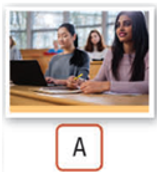



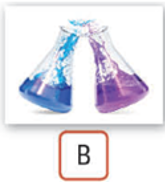

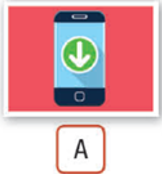
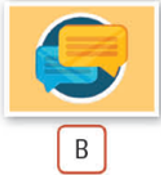

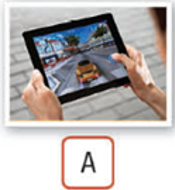
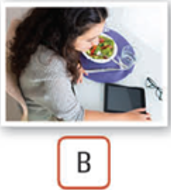


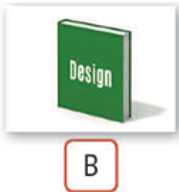
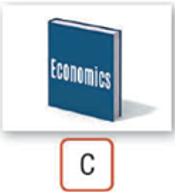









Danh sách bình luận